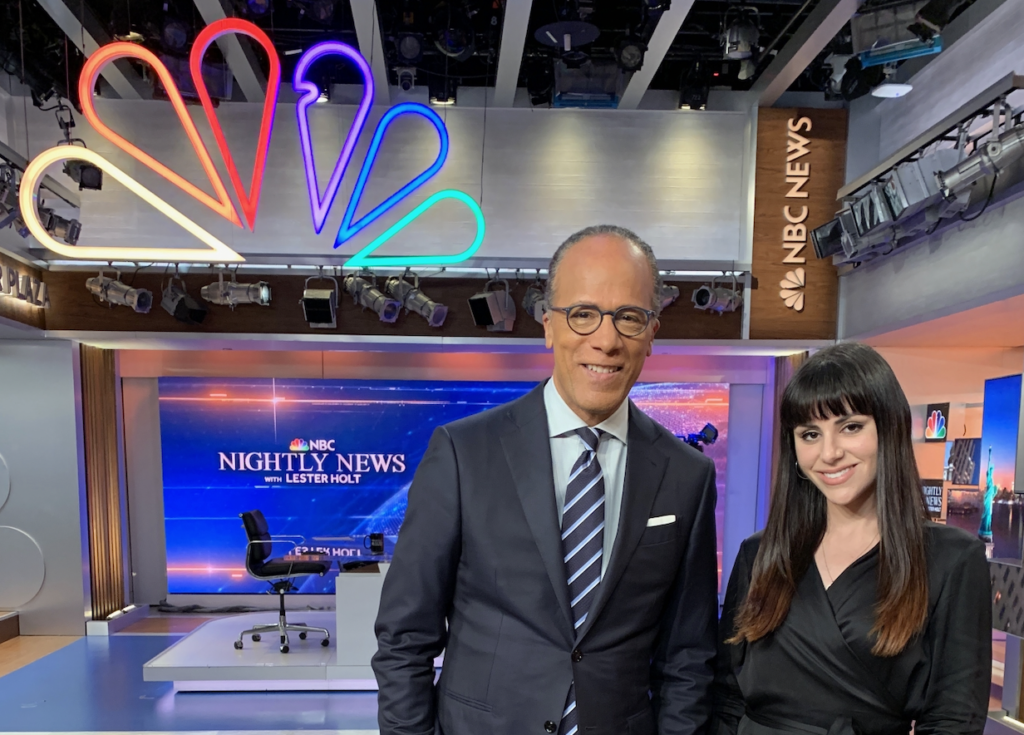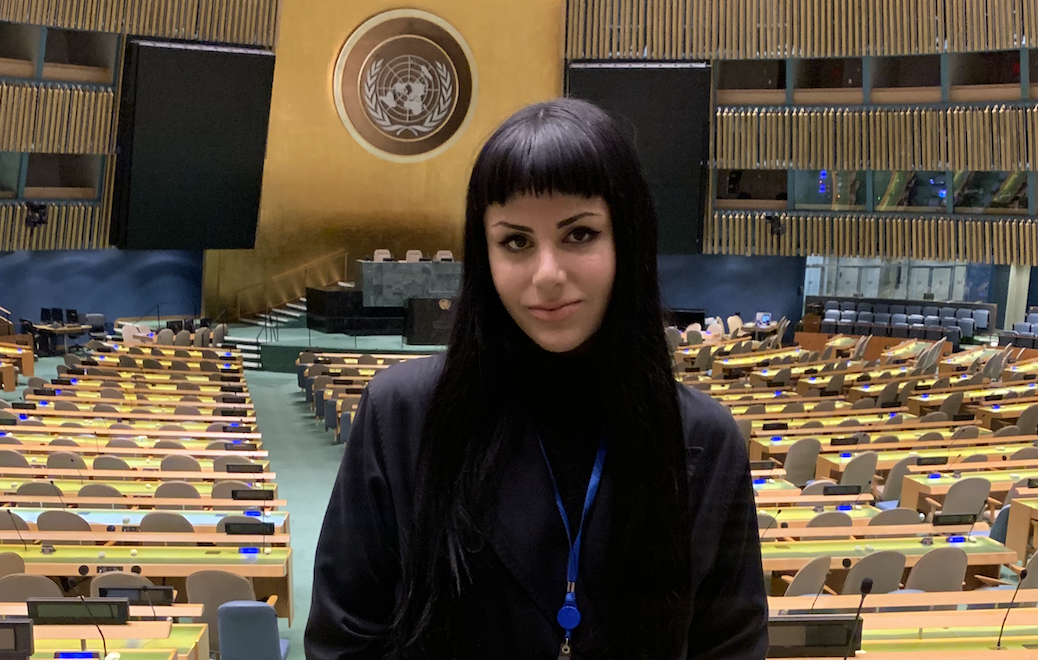Cleveland, Ohio native Taraneh Azar never imagined attending a Boston school, but reflecting on her time at Northeastern thus far, she believes it to be one of the best decisions she’s ever made. “I ended up at Northeastern by chance,” explained the fourth year journalism and political science combined major. Azar began her Northeastern journey with N.U.in Rome where she was able to take courses on Italian culture and ancient philosophy and political thought. When she arrived at the Boston campus in Spring 2018, her passion for journalism grew, particularly after taking Journalism I and later Journalism II with Professor Carlene Hempel. “The question is not why I chose Northeastern but rather what kept me at Northeastern,” explained Azar.
In searching for her first co-op for Spring 2019, Azar was offered a position with NBC Nightly News with Lester Holt which has been a central highlight of her undergraduate experience. Prior to this opportunity, Azar had never considered broadcast journalism as an area of interest, but joining the Nightly team changed everything.
Shortly after arriving at Nightly News, Azar quickly learned how to navigate the newsroom and found a number of opportunities to develop and refine her skills while discovering new interests within the news gathering process. By the end of her co-op, Azar’s work centered mostly around politics; conducting research for stories and working closely with editors, correspondents and producers. A memorable experience from her time with NBC was working on a story called “My BIG Idea,” where correspondent Harry Smith interviewed Democratic contenders on their policy initiatives and running platforms. This experience has been central to her work and focus since, as it allowed Azar to discover a new application within the field of journalism that goes beyond the local news and trend stories her work as a student journalist had focused on prior.

By 2020, Azar was soon back in New York for her second co-op with the United Nations Population Fund (UNFPA) as an Advocacy and Communications intern with the Humanitarian Office. This position bridged the application of her political science studies with her journalism experience in a different way, as Azar had the chance to experience what it’s like to not only work and research for an intergovernmental humanitarian agency but also what it’s like to write on their behalf for UN News. During her time with the UNFPA, Azar was able to work in advocating for reproductive health and rights, a topic she has been very passionate about from a young age. As the Advocacy and Communications intern, she was able to conduct phone interviews with representatives working in the field and also organize educational materials for application. “This experience confirmed that journalism is where my heart lies,” added Azar, explaining that advocacy is the essence of her interest and journalism is the vehicle.
Taraneh has a deeply personal appreciation for journalism — one that is rooted in her experience as an Iranian-American. “I have witnessed first-hand a society that is lacking a free and independent press — this is what drew me to journalism and keeps me so invested in navigating the capacity of journalism to do good,” stated Azar, recalling her frequent visits to Iran over the years. Through her writing and reporting, Azar’s ultimate goal is to contribute in meaningful ways to discourse in telling the most accurate and truthful stories while minimizing harm.
With each story she shares, Azar always considers the ethics of each piece and centers a balanced approach when reporting, regardless of the topic. “Embracing flexibility is key to doing your best as a journalist and as a member of any community — whatever community means to you,” she said. Azar is hugely focused on listening to and learning from each person she interviews and is dedicated to accurate representation.
Being a combined journalism and political science major can come with ethical dissonance between the two disciplines. In political science, people are encouraged to have a clear and visible political identity — something that is often expected. Journalists, on the other hand, are encouraged to keep their political and ideological leanings out of the public eye. During her time at Northeastern, Azar has explored and will constantly continue to consider how to navigate striking balance between the two.
Through her position as the Political Education Coordinator for NU SAID, Students Advancing Intersectional Dreams, she has become more comfortable with embracing the idea that no journalist or individual can be truly unbiased. She is passionate about advocating against systems of oppression and has organized educational programming and seminars on anti-racism, anti-capitalism and the practice of mutual aid and community-level organizing.
In her life thus far, Azar has learned the importance of being open to anything that comes her way. “In my personal experience, the best opportunities that I’ve been privileged to have were not necessarily what I was expecting. I’m thankful that I’ve been able to be open to many new opportunities and perspectives,” concluded Taraneh.


